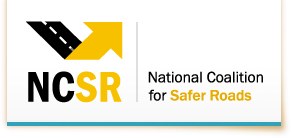The National Coalition for Safer Roads (NCSR) releases new Legislative Resources page
 We invite you to use this page in your work against the dangerous but reversible impact distracted and unsafe driving has on our communities. Along with clear and concise advice for how to get the attention of decision-makers, this page provides research and data from independent sources to describe the magnitude of the danger and how camera technology is helping to reduce traffic collisions and improve driver behavior.
We invite you to use this page in your work against the dangerous but reversible impact distracted and unsafe driving has on our communities. Along with clear and concise advice for how to get the attention of decision-makers, this page provides research and data from independent sources to describe the magnitude of the danger and how camera technology is helping to reduce traffic collisions and improve driver behavior.
TIPS TO COMMUNICATE EFFECTIVELY WITH LEGISLATORS
Be respectful:
- Arrive early.
- Prepare your presentation to fit the allotted time. Be brief and explicit.
Be well informed:
- Know the issue well enough to speak confidently on it, but phrase the argument in your own words
- Know the legislator, i.e. his/her party, membership on committees, rank on committees, stand on issue and his/her general disposition.
- Be familiar with the legislator’s district. Are crashes there rising or falling, what is the reaction in the community?
- If you are speaking on behalf of an organization, know the organization’s background, position and relationships it maintains with other groups.
- If you are speaking as a concerned citizen, present yourself objectively; be aware of your own personal prejudices or biases.
Arrive with data:
- Bring copies to share with legislator while you speak.
- Be prepared to leave fact sheets behind for the legislator to review.
- Include your contact information with the papers you leave behind.
Timing: The best time to speak with a legislator is …
- Just before a vote
- Immediately following action by the legislator in support of your cause.
- When a particular piece of legislation is pending before a committee,
- When a bill is about to come before the full House or Senate.
Additional Do’s and Don’ts from the League of Women Voters of Washington
DO’S
- Address your Senator or Representative properly.
- Identify yourself immediately at each contact. Public officials meet too many people to remember everyone.
- Know the status of the legislation. Refer to a bill by number whenever possible.
- Use your own words.
- Be brief and explicit, courteous and reasonable.
- Establish your own credentials or expertise on the subject of legislation under consideration.
- Give legislators succinct, easy to read literature; highlight important facts and arguments. Their time is limited.
- Write the chair or members of a committee holding hearings on legislation in which you are interested if you have facts that you think should influence his or her thinking.
- Get to know legislative staff and treat them courteously. Their cooperation can make or break your chances to reach the legislators themselves.
- Always keep off-the-record comments confidential.
- Write to say you approve, not just to criticize or oppose.
- In a letter include your address and sign your name legibly.
- Keep the door open for further discussion in spite of any apparently negative attitudes.
DON’T
- Don’t begin, “As a citizen and taxpayer” (your elected representative knows we all pay taxes).
- Don’t apologize for taking his or her time. If you are brief and to the point s/he will be glad to hear from you.
- Don’t be arrogant, condescending or threatening toward legislators or their staff.
- Don’t argue or back recalcitrant legislators into a corner where they take a definite position against you.
- Don’t make notes of a conversation while talking to a legislator.
- Don’t send copies or form letters unless you have taken the time to include a personal note.

